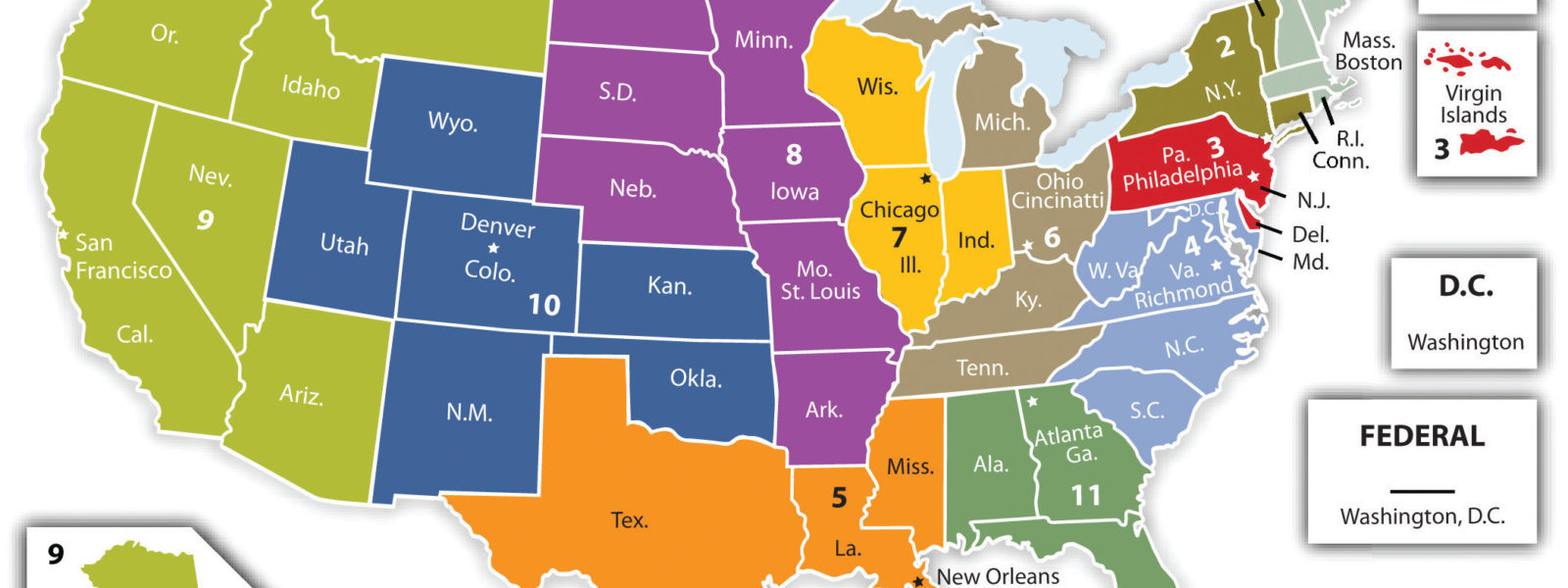
11 Apr Federalism as Played Out in the Court System
A friend of mine is certified as an interpreter in the courts of a dozen or so states. I was asking myself the other day, “Why not simply have a centralized system, in which your certification is valid in any one of the fifty states?” Of course, there is the NCSC and the possibility to obtain reciprocity in other states if you are certified in just one. But it’s not so simple. To obtain reciprocity in many states, interpreters must attend orientation sessions, each several hours long, to help them learn the ropes of the court system in that specific state. Different states each have their own distinct legal system.
This opens up the larger question of federalism as played out in the court system itself. The United States has a long history of federalism. But is federalism the better way, when compared to centralism? Which is the most natural way to organize large societies?
You might say to yourself: “I don’t care; I’m just here to interpret and to get paid,” and to be honest with you, that is a valid position to have. I tend to think one ought to “love the process,” as they say, and not just the goal; as you climb up the mountain to be able to enjoy the vista, it’s nice to stop often along the way, take in the fresh smells of the forest, the sound of a gentle brook or the chirping of birds; if you’re daring, perhaps even ask yourself how the forest got to be there to begin with.
Anyone wishing to work in some capacity with the U.S. court system may at first balk at its complexity.[i] And yet it is possible to thrive within such a complex system, as evidenced by the fact that a good number of people do. The human mind thrives on complexity, not on complicatedness.[ii] What is federalism? The Oxford Dictionary defines “federalism” as “A political system in which power is vested in an association of constituents, rather than in a central government set over and above them.”
Different countries have adopted different modes of government. The French have a very centralized form of government – France spending only twenty percent of public funds on local government, the lowest proportion out of all the major EU countries.[iii] The Swiss Confederation, meanwhile, is very decentralized. With its absolutely massive population, India has a decentralized form of government,[iv] but a rather centralized judicial system.[v] Calls have been made to grant more authority to local bodies.[vi]
So, which is better? Federalism or centralism? It would seem that federalism most resembles other parallel societal realities. Consider language, for instance: the most natural thing throughout most of human history has been for language and culture to be very localized, with many different tribes, cultures, and spoken languages occupying a relatively small area. Languages and cultures develop in their own localized context, generally without asking neighboring cultures for permission. This is still the case in much of Europe (even more, of course, before the modern nation-state was born), as well as in Asia and Africa. It was the case of the Americas before colonization, through which a small handful of European countries were able to gain control over incalculably large swaths of land and the populations that lived on them.
Federalism could loosely be considered a synonym of subsidiarity, or the ability to aptly delegate. The more tasks are delegated to local powers, the better higher authorities may manage the tasks incumbent upon them, since no one human being can manage responsibilities that are way too big for them. Colonization and technology may have us believe that human nature has changed, but proper delegation is the only thing that makes management possible. The societies that enjoy the most relative peace are those whose leaders know how to delegate and whose political and legal systems provide for such delegation of powers.
Therefore, there is a reason the different court systems are not simply localized versions of the federal supreme court. Imagine if the courts of Kentucky, California, Wyoming, or New York were governed by a representative from Washington. Something about that just feels un-American.[vii]
But regardless of what your or my opinion might be about the nature of the present justice system, you have to recognize that it works – if you didn’t think so, you wouldn’t be working in it. Do you think the courts could afford to be more centralized? Can you point out other virtues of the present system or of a more unitary approach?
[i] https://www.usa.gov/state-courts
[ii] Credit goes to Emmanuel Manolakakis for this idea.
[iii] https://www.bruegel.org/2019/02/frances-institutional-system-favours-rebellion-against-its-leader/
[iv] https://www.cambridge.org/core/services/aop-cambridge-core/content/view/C6DBC0C1267746CAACF37CCB290C1084/9781316258071c3_p24-44_CBO.pdf/decentralization_in_india_history_laws_and_politics.pdf
[v] https://www.mapsofindia.com/government-of-india/judiciary/
[vi] https://www.barandbench.com/columns/divide-and-unite-decentralizing-the-judiciary
[vii] https://officialalamo.medium.com/federalism-vs-centralism-why-it-matters-to-the-texas-revolution-190af0b89881
 Jules Lapprand grew up in Victoria, British Columbia, and spent a significant part of his adult life in Montreal, Quebec. He completed a translation certificate from Spanish into English at McGill University (Montreal) in 2016 and a Master’s in Conference Interpreting at York University (Toronto) in 2019. He has worked as a freelance translator and interpreter since 2018. Outside of work, he enjoys literature and music, martial arts, and road trips. He lives in central Michigan with his family. E-mail Jules at TNO_editor@najit.org.
Jules Lapprand grew up in Victoria, British Columbia, and spent a significant part of his adult life in Montreal, Quebec. He completed a translation certificate from Spanish into English at McGill University (Montreal) in 2016 and a Master’s in Conference Interpreting at York University (Toronto) in 2019. He has worked as a freelance translator and interpreter since 2018. Outside of work, he enjoys literature and music, martial arts, and road trips. He lives in central Michigan with his family. E-mail Jules at TNO_editor@najit.org.
Main photo taken from “The Relationship between State and Federal Court Systems in the United States” at LibreTexts.

A centralized approach would also mean, it seems, that pay scales and accompanying expenses/mileage / travel or whatever, would have to be in sync. Nice thought, but I doubt the states will go for it – and maybe not the interpreters, either, if it means take a pay cut.
Senior Systema Instructor – and Founder of Fight Club Toronto – Emmanuel Manolakakis?
Yes, Jason!